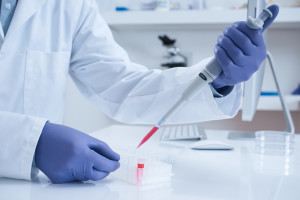Last year we covered a Pennsylvania legal dispute over DNA testing software used by forensic expert witnesses in criminal trials. Earlier this week the case took another turn when a Pennsylvania judge blocked defense lawyers from accessing the source code for the software, rejecting arguments that the Sixth Amendment mandated the DNA expert witnesses turn over the details of their methodology.
Defense Attorneys Challenge DNA Expert Witness Software
In Pennsylvania and across the country forensic DNA expert witnesses have increasingly relied on a software program which, according to its creators, is able to improve the accuracy of DNA testing significantly. The program, called TrueAllele, can provide police investigators and prosecutors with a positive match using DNA found at a crime scene by comparing it to large databases of stored genetic material. Experts analyze genetic material using the TrueAllele program in order to single out individuals who are linked to the crime, and it has been used in sexual assault, homicide, and property destruction criminal trials.
Pennsylvania and several other states have widely adopted expert witness use of TrueAllele with several police departments and trial courts fully integrating the program. The program has gained favor because of its ability to parse out individual DNA from multiple sources, which is a feature most crime labs are unable to accommodate. TrueAllele’s DNA analysis is more thorough than competing tools, giving investigators better opportunity to single out suspects. Despite the software’s growing acceptance in the legal system, defense attorneys in Pennsylvania have resisted its continued use because they are unable to gain access to TrueAllele’s source code.
Defense Attorneys Petition to Access TrueAllele’s Source Code
Defense attorneys for Michael Robinson, a man charged with shooting and killing two men in Allegheny, PA, argued that the hidden source code behind TrueAllele denied their client the opportunity to adequately confront all of the evidence against him. Robinson’s attorneys, like others before them, argued that the mysterious software program may provide DNA results which police and prosecutors find useful, but its reliability and accuracy cannot be adequately tested without other experts fully analyzing the code which the program uses to parse out genetic material.
TrueAllele has not been in circulation for very long, and defense attorneys claim that without verification by independent experts there are too many unanswered questions about its accuracy to trust. DNA evidence, which is heavily used in criminal trials, was the center of a scandal last May when the FBI admitted to providing inaccurate expert witness testimony at hundreds of trials due to faulty tools of analysis, and defense attorneys have shown a hesitancy to accept forensic analysis technology at face value.
TureAllele’s creator, computer scientist Mark Perlin, has consistently resisted sharing his source code by arguing it would be economically disadvantageous for his company to do so. Currently Mr. Perlin’s company Cybergenetics is the only one using the software, and he does not want to disclose trade secrets as part of a criminal trial.
Pennsylvania Judge Protects DNA Software Source Code
In response to requests by attorneys for Michael Robinson who requested the TrueAllele source code be revealed as part of their cross-examination of prosecutor DNA expert witnesses, Judge Jill E. Rangos said the defense did not sufficiently demonstrate the need for the source code. According to Judge Rangos, requiring Cybergenetics to disclose the source code has “the potential to cause great harm” because of it is a highly valuable trade secret which no other company is able to duplicate at this time. Further, Judge Rangos said that revealing the source code is not “the lynchpin to undermining the Commonwealth’s case” against Robinson, and therefore the defense does not have sufficient reason to put Mr. Perlin’s business at risk by exposing his code.
Robinson’s defense team publically disagreed with the ruling, maintaining that defendants have a 6th Amendment right to adequately confront witnesses, and in this case that means challenging the foundation of the technology used by expert witnesses who provide DNA testimony. Perlin maintains that experts do not even use the source code, but simply rely on the technology to produce a result after they input data and attorneys can safely test the extent of the expert’s knowledge and methodology without access to the underlying code of the software.
Judge Rangos’s ruling echoes the result from a handful of other criminal courts across Pennsylvania and other states, so for now DNA expert witnesses can safely use TrueAllele without Cybergenetics revealing the protected source code.





Very interesting development. I’m sure the judge had reasons to deny the code, but it is interesting to think of why. Hope to hear more about this case as more develops!